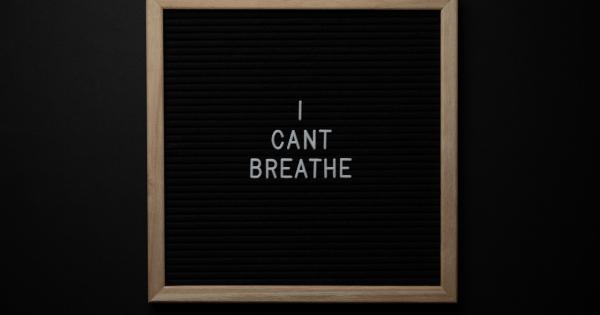Hypotension, commonly known as low blood pressure, is a condition in which the blood pressure in your arteries is abnormally low. While it may seem harmless, severe hypotension can lead to dizziness, fainting, and even life-threatening complications.
Spotting the symptoms of hypotension is crucial for timely diagnosis and appropriate management of this condition.
1. Fatigue and Weakness
One of the early signs of hypotension is feeling excessively tired or weak. When your blood pressure is low, it affects the flow of oxygen and vital nutrients to your muscles and organs, leading to a general feeling of fatigue.
You may find yourself struggling to perform everyday tasks that were once effortless.
2. Dizziness and Lightheadedness
Another common symptom of hypotension is dizziness or lightheadedness. It typically occurs when you stand up too quickly, causing a sudden drop in blood pressure. This phenomenon is known as orthostatic hypotension.
You may feel as if the room is spinning and struggle to maintain your balance.
3. Fainting
In severe cases of hypotension, fainting episodes may occur. Fainting, also known as syncope, happens when there is a temporary insufficient flow of blood to the brain.
If you experience fainting spells, it is crucial to seek medical attention to determine the underlying cause and receive appropriate treatment.
4. Blurred Vision
Low blood pressure can also affect your vision. Blurred vision or seeing spots can occur due to reduced blood flow to the eyes.
If you notice sudden changes in your vision, especially in conjunction with other hypotension symptoms, it is advisable to consult a healthcare professional.
5. Nausea and Vomiting
Hypotension can sometimes cause gastrointestinal symptoms such as nausea and vomiting. The reduced blood flow to the digestive system can lead to abdominal discomfort, a feeling of queasiness, and even vomiting.
If these symptoms persist or worsen, medical evaluation is recommended.
6. Rapid Breathing
Hypotension can affect your respiratory system as well. Rapid, shallow breathing or shortness of breath may occur as the body tries to compensate for the decreased oxygen supply.
If you experience unexplained respiratory symptoms, it’s essential to consider hypotension as a possible cause.
7. Cold, Clammy Skin
When blood pressure drops significantly, the body’s natural response is to redirect blood flow to essential organs, such as the heart and brain.
This redirection can result in cold, clammy skin as less blood is circulated to the skin’s surface. If your skin feels unusually cold and moist, it might indicate hypotension.
8. Depressed or Muddled Thinking
In some cases, hypotension can affect cognitive function. You may feel a sense of mental fogginess, difficulty concentrating, or even mild depression.
The brain requires a steady supply of oxygen and nutrients, and any disruption in blood flow can affect its proper functioning.
9. Rapid, Weak Pulse
Checking your pulse can provide valuable insights into your heart rate and blood pressure. In hypotensive individuals, the pulse is often fast but weak.
Use your index and middle fingers to locate your pulse (e.g., on your wrist or neck) and assess its rhythm and strength. If you notice any unusual changes, inform your healthcare professional.
10. Difficulty Sleeping
Hypotension can disrupt your sleep patterns. You may find it challenging to fall asleep or stay asleep throughout the night due to discomfort or frequent waking up feeling lightheaded.
Consistently poor sleep quality can have a negative impact on your overall well-being.




























